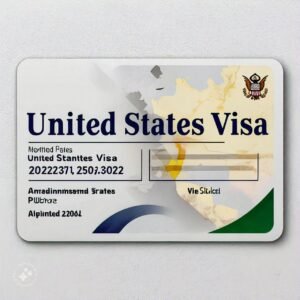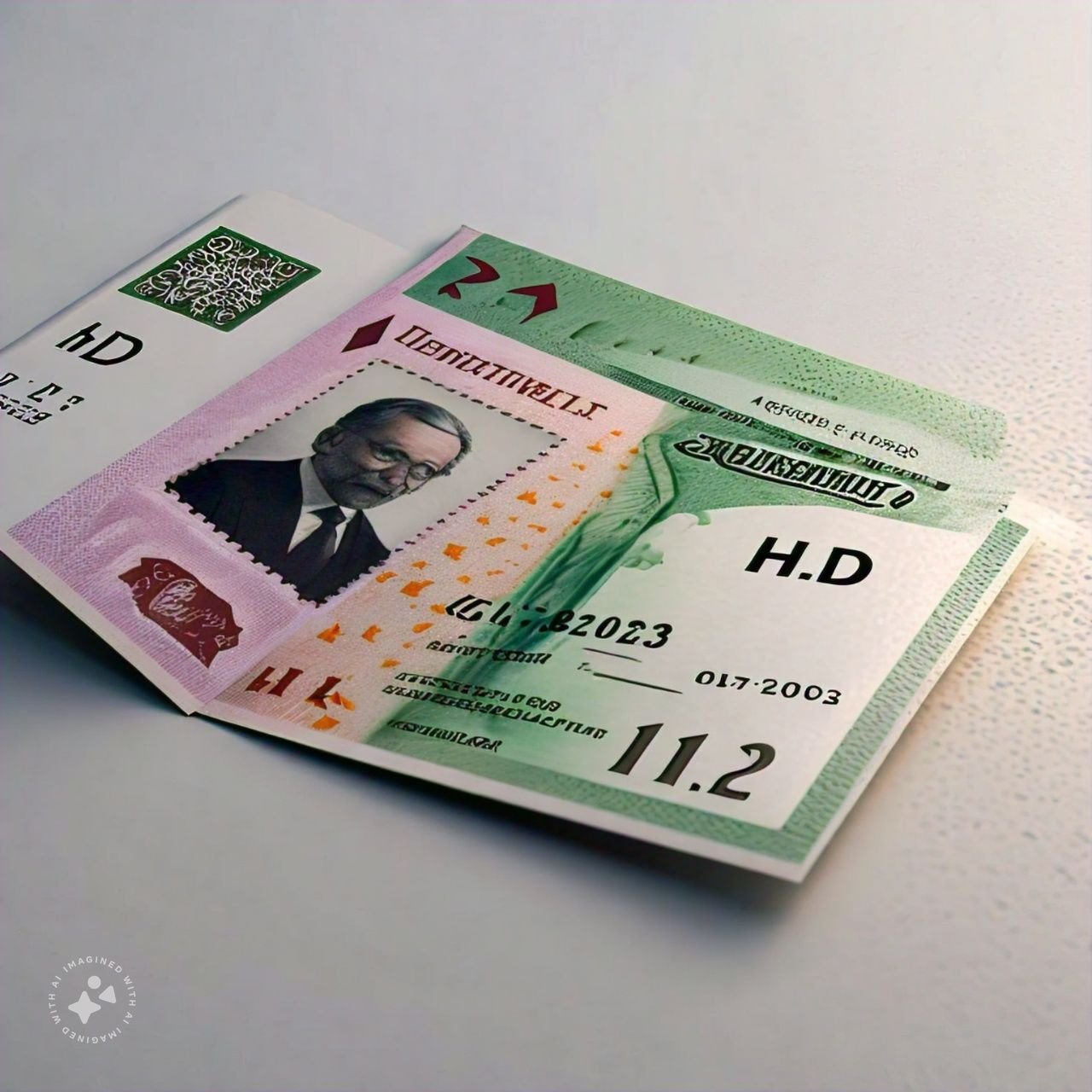Introduction
“When exploring international travel or relocation opportunities, understanding the various types of visas is crucial. Visas, including diplomatic and official visas, serve as essential travel documents that permit individuals to enter and stay in foreign countries for specific purposes. In this article, we will delve into the different categories of visas, such as diplomatic visas, official visas, and more, to help you navigate the complex world of visa requirements and applications.”
Diplomatic and official visas are essential for individuals traveling internationally on state or government business. These specialized visas facilitate the entry of diplomats and government officials, allowing them to perform their duties abroad. Understanding the requirements and application processes for diplomatic and official visas is crucial for ensuring compliance with international regulations. This guide provides a detailed look at these visa types, including their purpose, necessary documentation, and benefits. By familiarizing yourself with diplomatic and official visas, you can navigate the complexities of official travel more effectively.
read more : Global Passport Issuance Authority
Tourist Visas
Tourist visas allow travelers to visit a foreign country for leisure or sightseeing. These visas typically have short validity periods, often ranging from a few weeks to several months. You must apply for a tourist visa before your trip, although some countries offer visa-free or visa-on-arrival options.
To obtain a tourist visa, you must provide specific documents, including a valid passport and recent photographs. Some countries require proof of accommodation, return tickets, and travel itineraries. Financial proof, such as bank statements, may also be necessary to demonstrate you can support yourself during your stay.
Tourist visas generally prohibit any form of work or study during your visit. Violating these terms can result in penalties or deportation. Therefore, understanding the limitations of your tourist visa is crucial to avoid legal complications.
In some cases, you can extend a tourist visa, but this process varies by country. Extensions often require a valid reason and must be applied for before the visa expires. It’s essential to follow the specific guidelines of the country you are visiting.
Tourist visas are a popular choice for travelers seeking to explore new destinations. By understanding the requirements and restrictions, you can enjoy a hassle-free vacation.
Business Visas
Business visas enable individuals to travel abroad for business-related activities, such as meetings, conferences, or negotiations. These visas typically allow short stays, often lasting from a few days to several months. You must apply for a business visa before your trip, as visa-free or visa-on-arrival options are rarely available for business purposes.
To obtain a business visa, you must submit specific documents, including a valid passport and recent photographs. Additionally, many countries require an invitation letter from the host company or organization. This letter should detail the purpose of your visit, your role, and the duration of your stay.
Business visas usually restrict the type of work you can perform while in the country. For instance, you may attend meetings, but you cannot engage in full-time employment. It’s essential to understand these limitations to avoid violating your visa terms.
In some cases, you may extend a business visa if your work requires a longer stay. However, you must apply for an extension before your current visa expires. The process varies by country and may involve additional documentation.
Business visas are vital for professionals engaging in international commerce. By following the application guidelines and adhering to visa restrictions, you can conduct your business activities smoothly.

Student Visas
Student visas allow individuals to study in a foreign country for an extended period. These visas are essential for enrolling in academic programs, from language courses to higher education. The application process typically requires submission before your planned start date.
To obtain a student visa, you must provide several documents, including a valid passport and recent photographs. Proof of acceptance into an educational institution is also necessary. This usually involves submitting an official admission letter from the school or university.
Student visas often come with restrictions on employment. Some countries allow part-time work while studying, but you must comply with local regulations. Be sure to check the specific rules regarding work opportunities on your student visa.
Maintaining your student visa status requires full-time enrollment in your program. Failure to meet academic or attendance requirements may jeopardize your visa. It is crucial to stay in good standing with your educational institution.
In many cases, student visas are renewable, allowing you to extend your stay for additional studies. You must apply for renewal before your current visa expires. Following these guidelines ensures a smooth academic experience abroad.
Work Visas
Work visas permit individuals to work legally in a foreign country for a specified period. These visas are crucial for securing employment and often involve a detailed application process. You typically need a job offer or sponsorship from an employer to apply.
To obtain a work visa, you must submit several documents, including a valid passport and recent photographs. A job offer letter from your employer is usually required. This letter should outline your job role, salary, and the duration of your employment.
Work visas often come with specific restrictions, such as the type of work you can do and the employer you can work for. Violating these conditions can lead to legal issues or visa revocation. Always understand the terms of your work visa before starting employment.
In some cases, you may apply for an extension or renewal of your work visa if your employment continues. You must apply for an extension before your current visa expires. The process and requirements vary by country and may involve additional paperwork.
Work visas are essential for international employment opportunities. By meeting the requirements and adhering to visa conditions, you can work abroad legally and successfully.
Transit Visas
Transit visas allow travelers to pass through a country on their way to another destination. These visas are typically required if you need to stop in a country for a short period before continuing your journey. They usually have a limited validity and permit only brief stays.
To obtain a transit visa, you must provide several documents, including a valid passport and recent photographs. Proof of onward travel, such as a flight ticket to your next destination, is also required. Some countries may ask for additional documents, such as a visa for your final destination.
Transit visas often come with specific conditions. For instance, you may be restricted to remaining in the airport or designated transit areas. You may not be allowed to leave the airport or engage in any activities beyond transit purposes.
In some cases, you can apply for a transit visa if you have a layover of more than a few hours. However, if your layover is short, you might not need a visa. Always check the requirements of the country where you will transit.
Transit visas are important for smooth international travel. By meeting the requirements and adhering to the visa conditions, you can ensure a hassle-free transfer between flights.
Diplomatic and Official Visas
Diplomatic and official visas are designed for government officials and diplomats traveling on state business. These visas grant special privileges and immunities that differ from standard visas. They facilitate diplomatic functions, negotiations, and official duties abroad.
To obtain a diplomatic or official visa, you must usually be nominated or endorsed by your government. The application process often involves submitting a diplomatic note or official request from your home country’s foreign ministry. Supporting documents, such as a valid passport and photographs, are also required.
Diplomatic and official visas typically offer more lenient entry conditions compared to regular visas. For example, they may allow for longer stays and exempt the holder from certain visa requirements. However, the visa terms may restrict the type of activities you can perform.
These visas come with specific responsibilities and conduct expectations. You must adhere to the protocols of the host country and fulfill your official duties. Misuse of a diplomatic or official visa can result in serious consequences, including deportation or revocation of visa status.
Diplomatic and official visas are crucial for international relations and state functions. By following the application procedures and respecting visa terms, you can carry out your official duties effectively.

